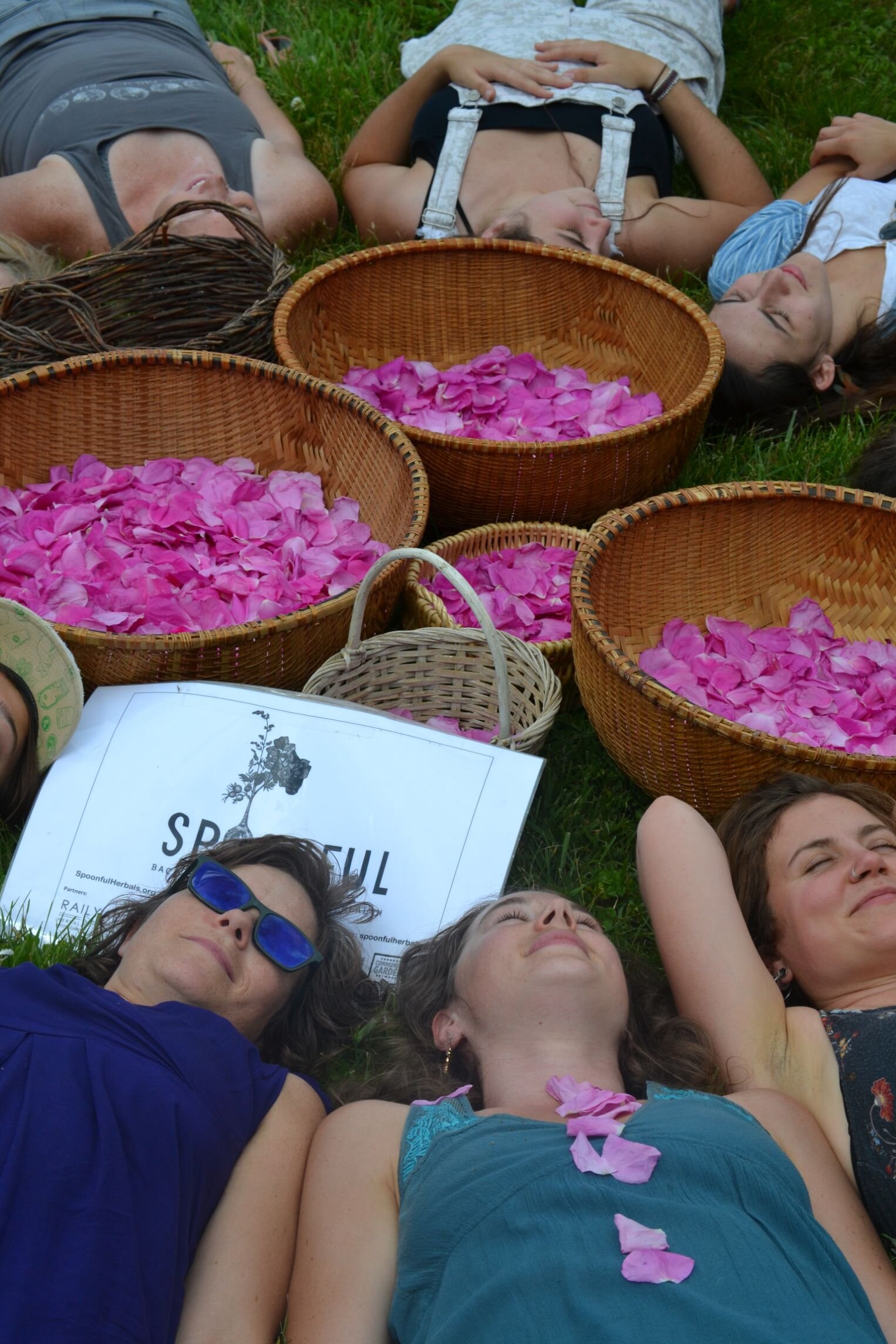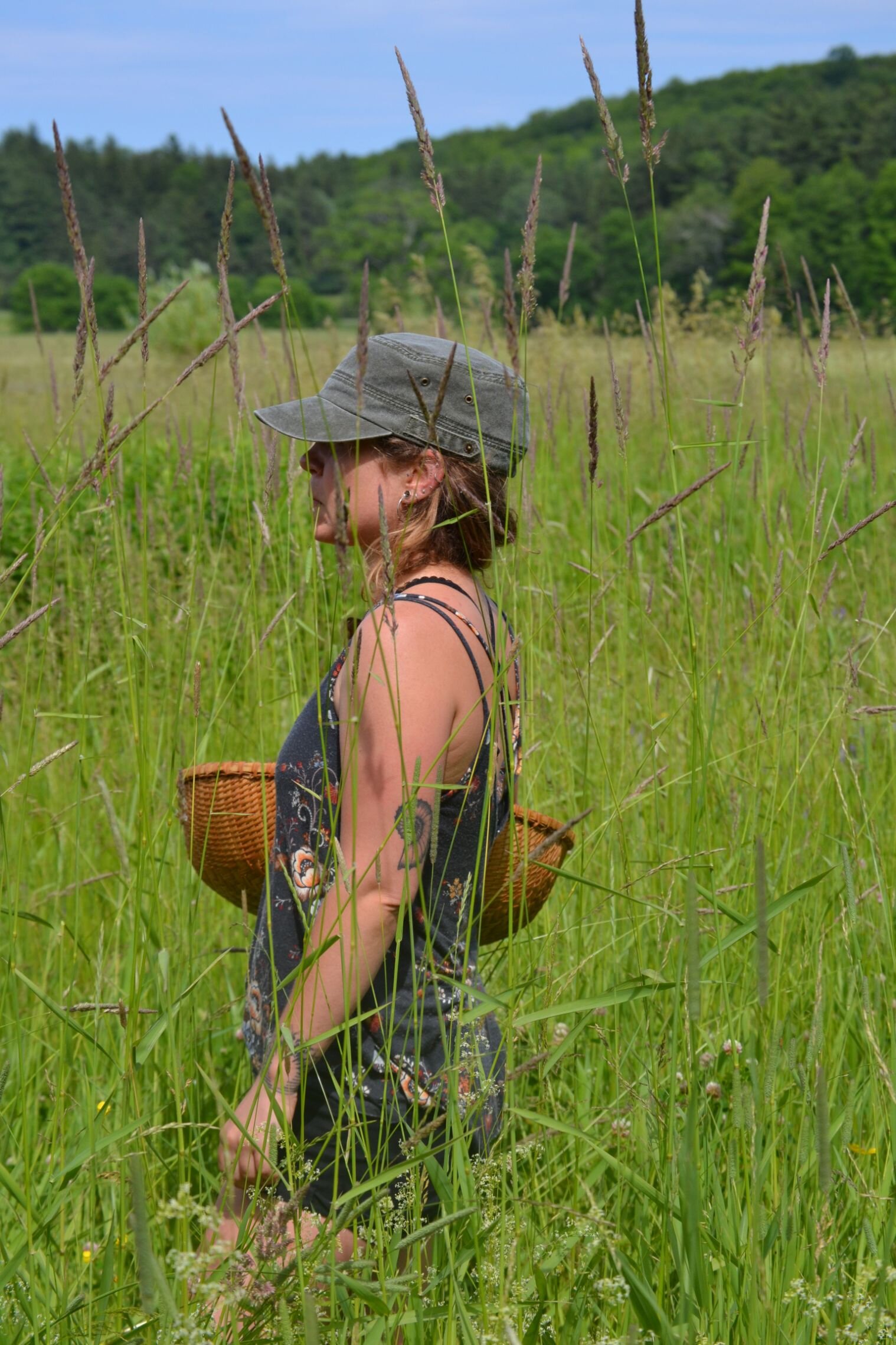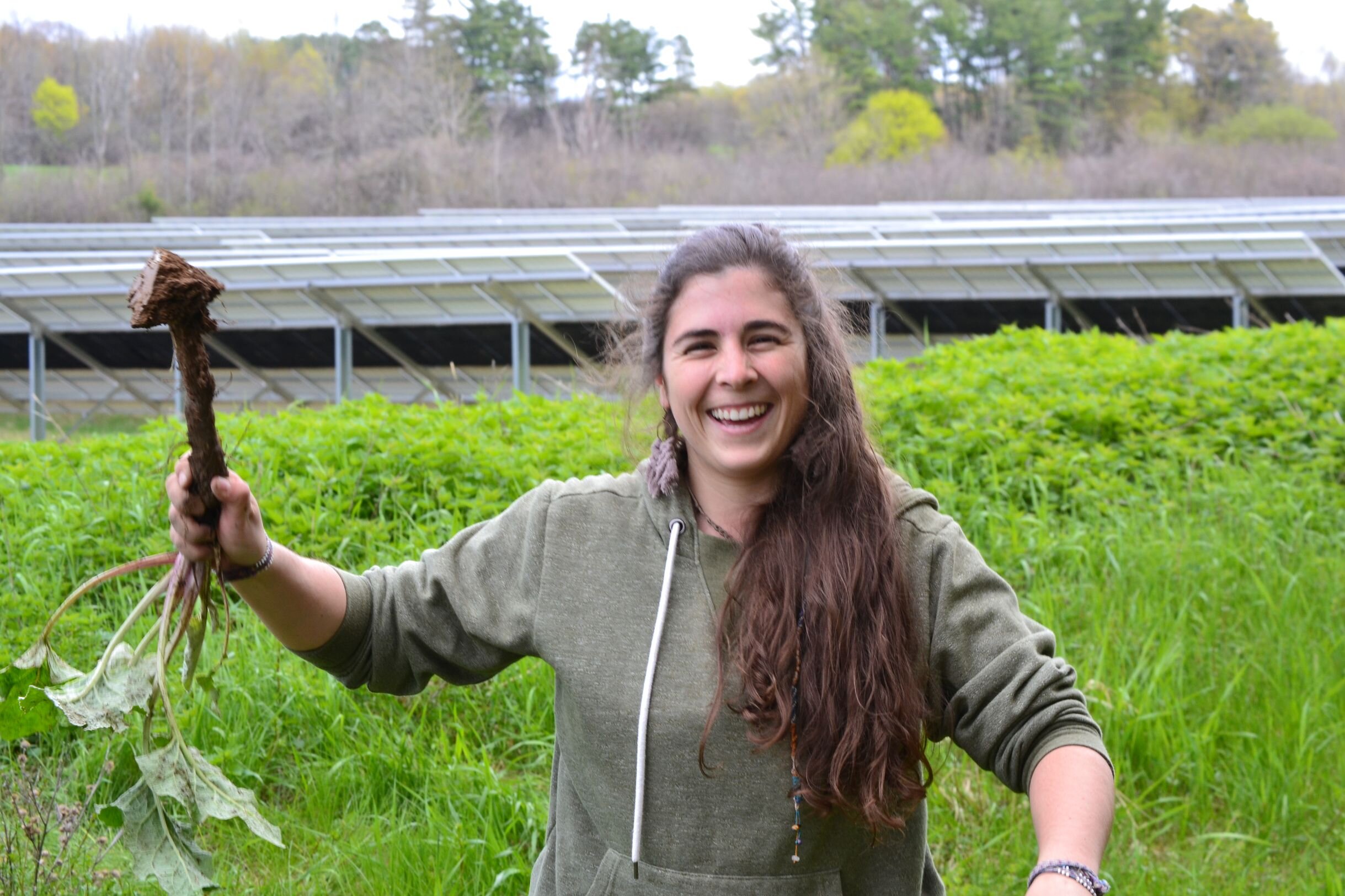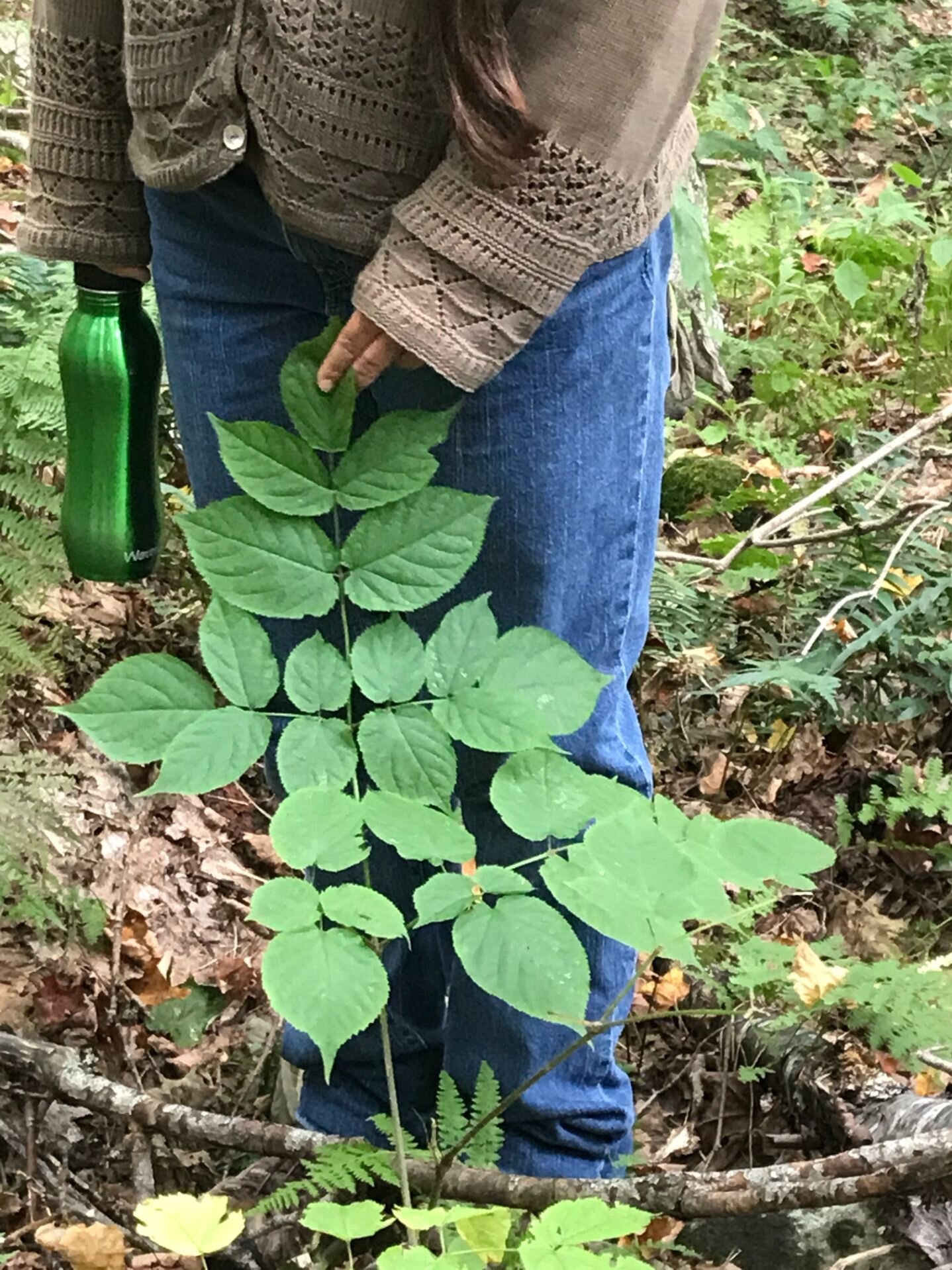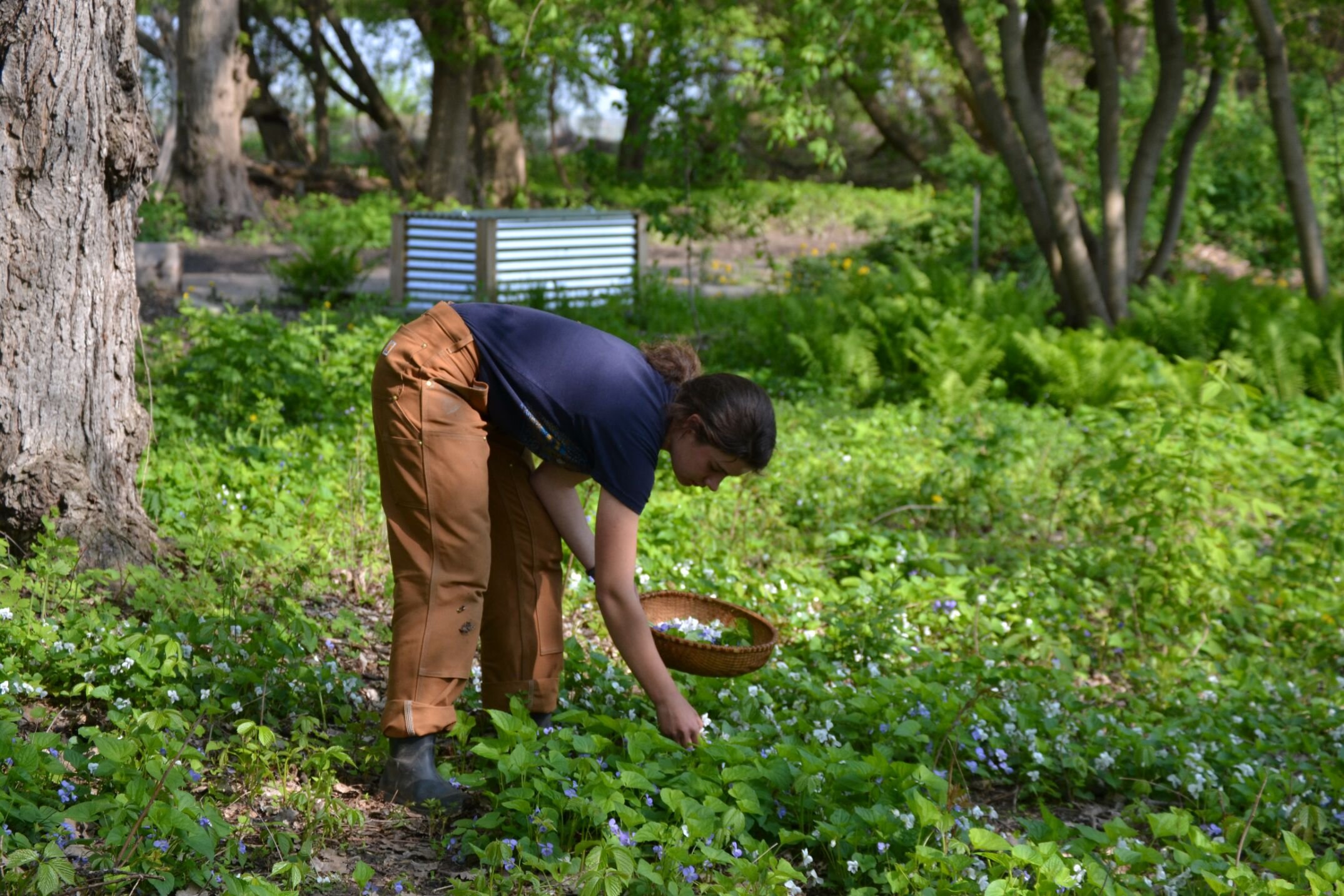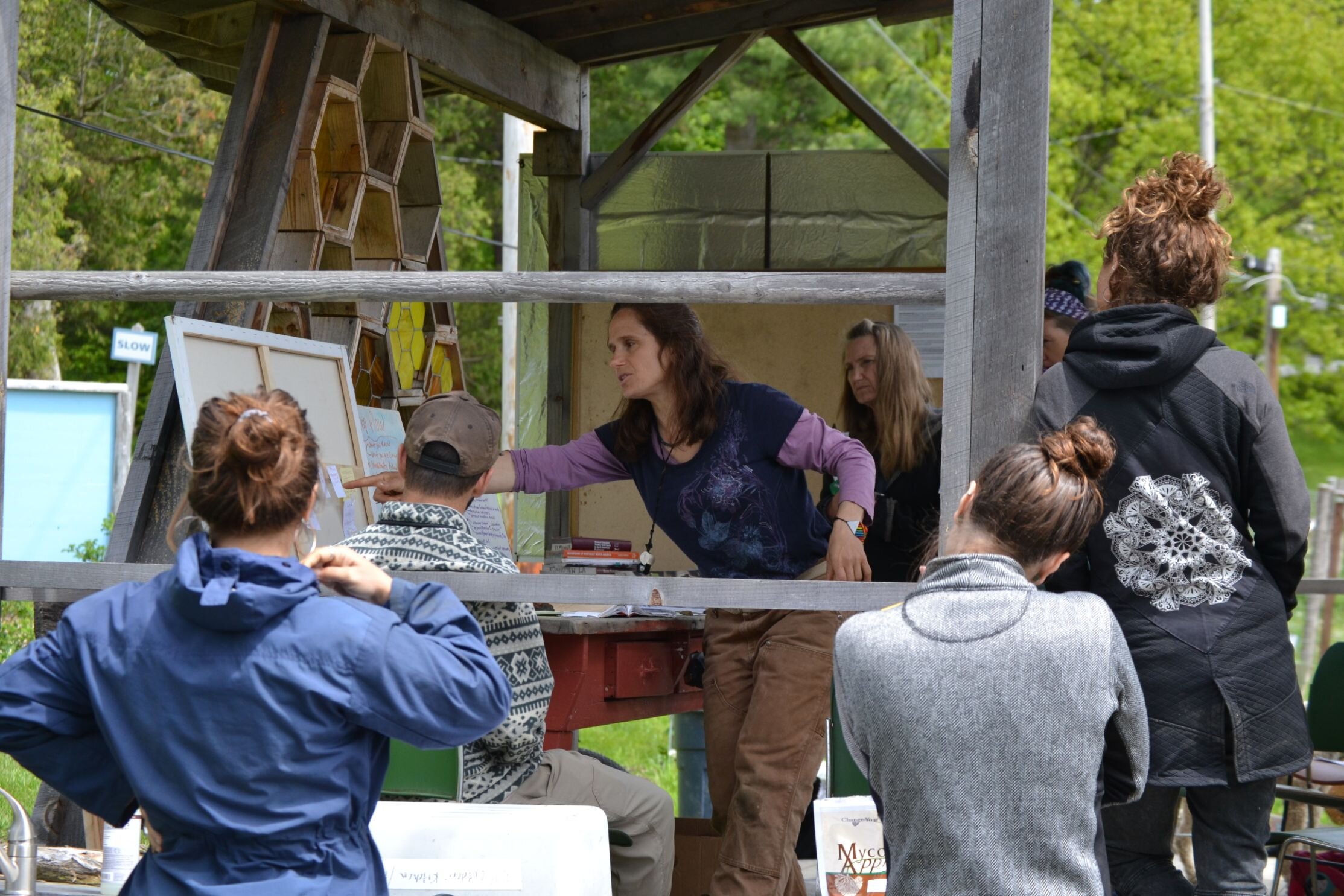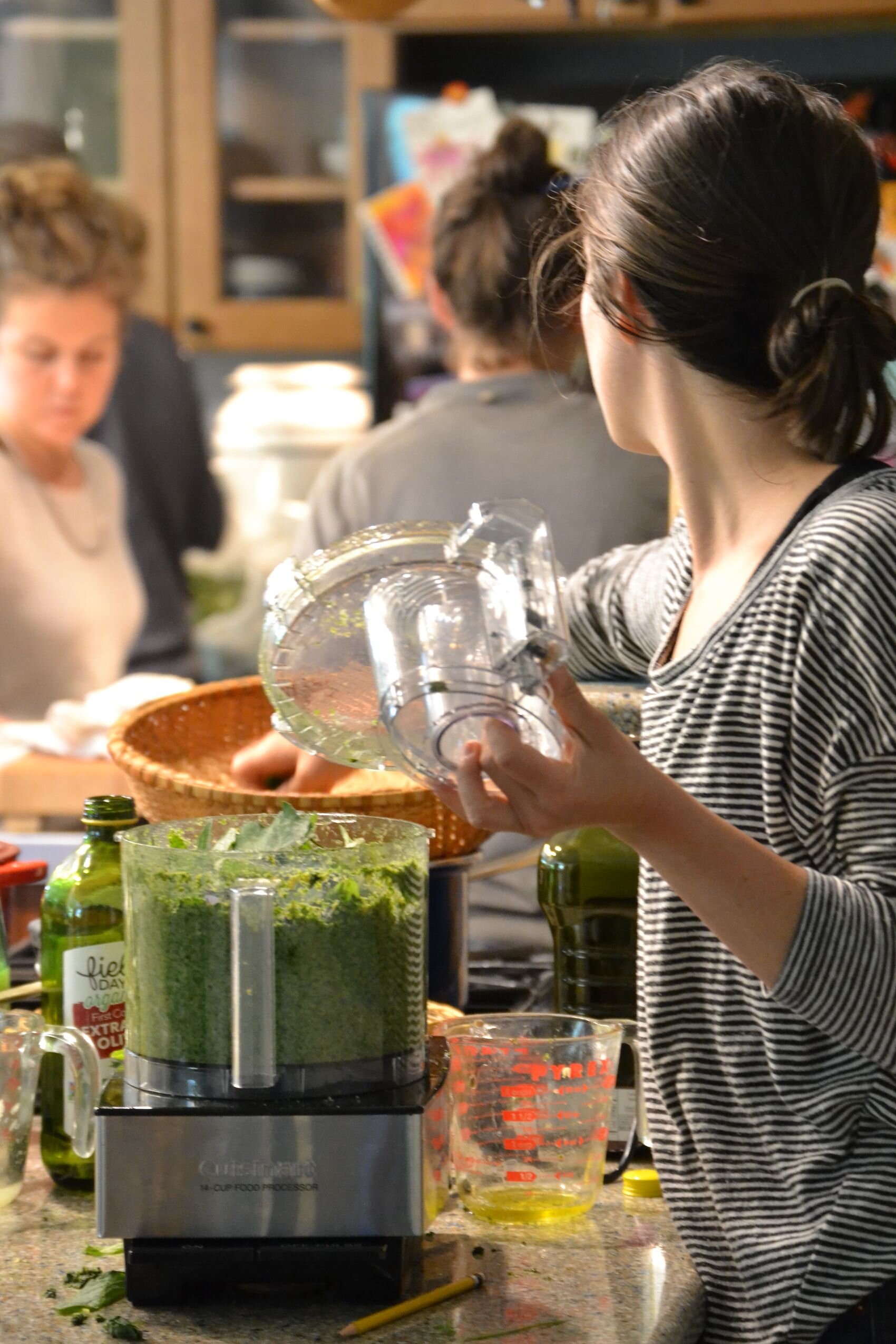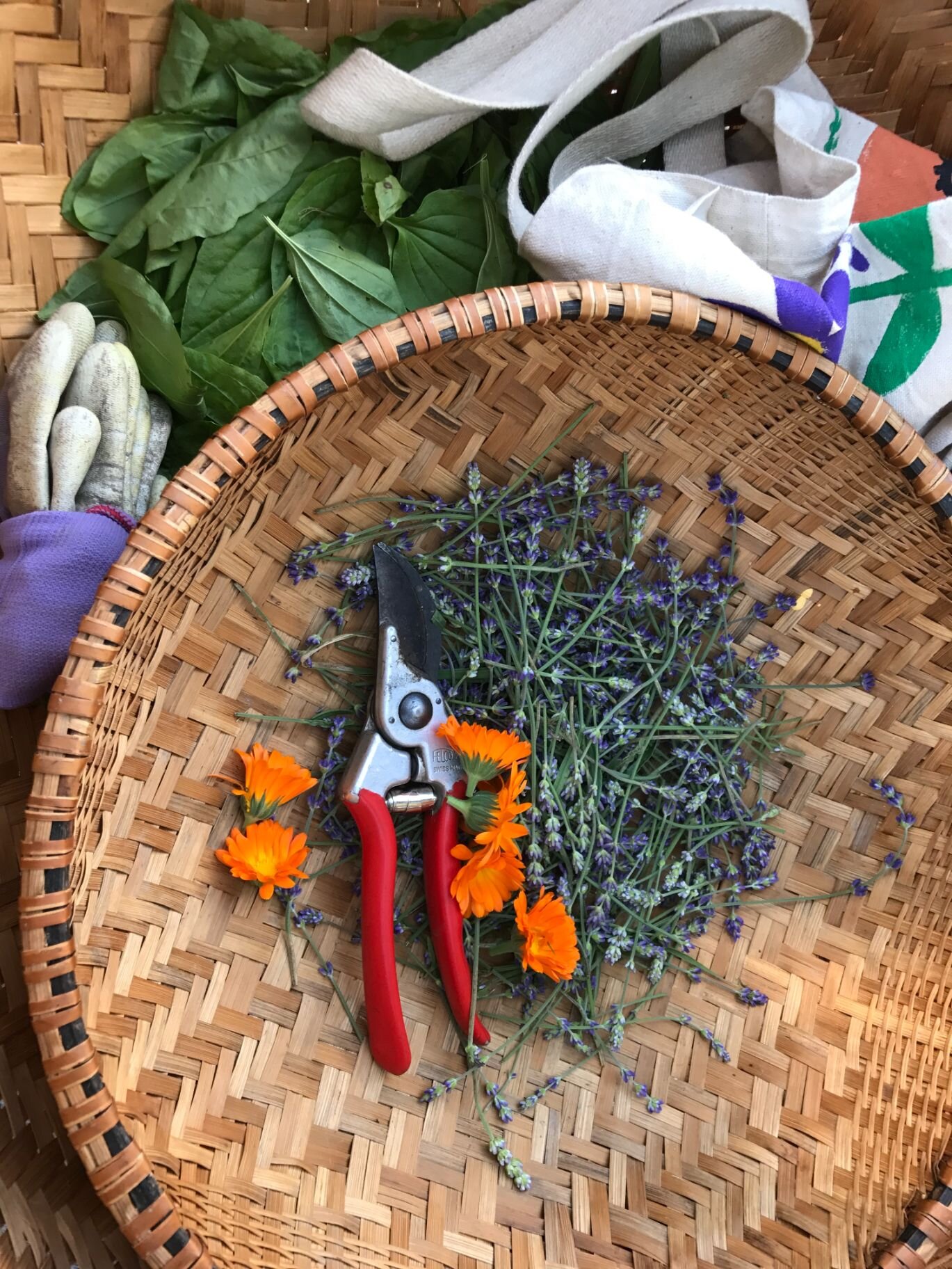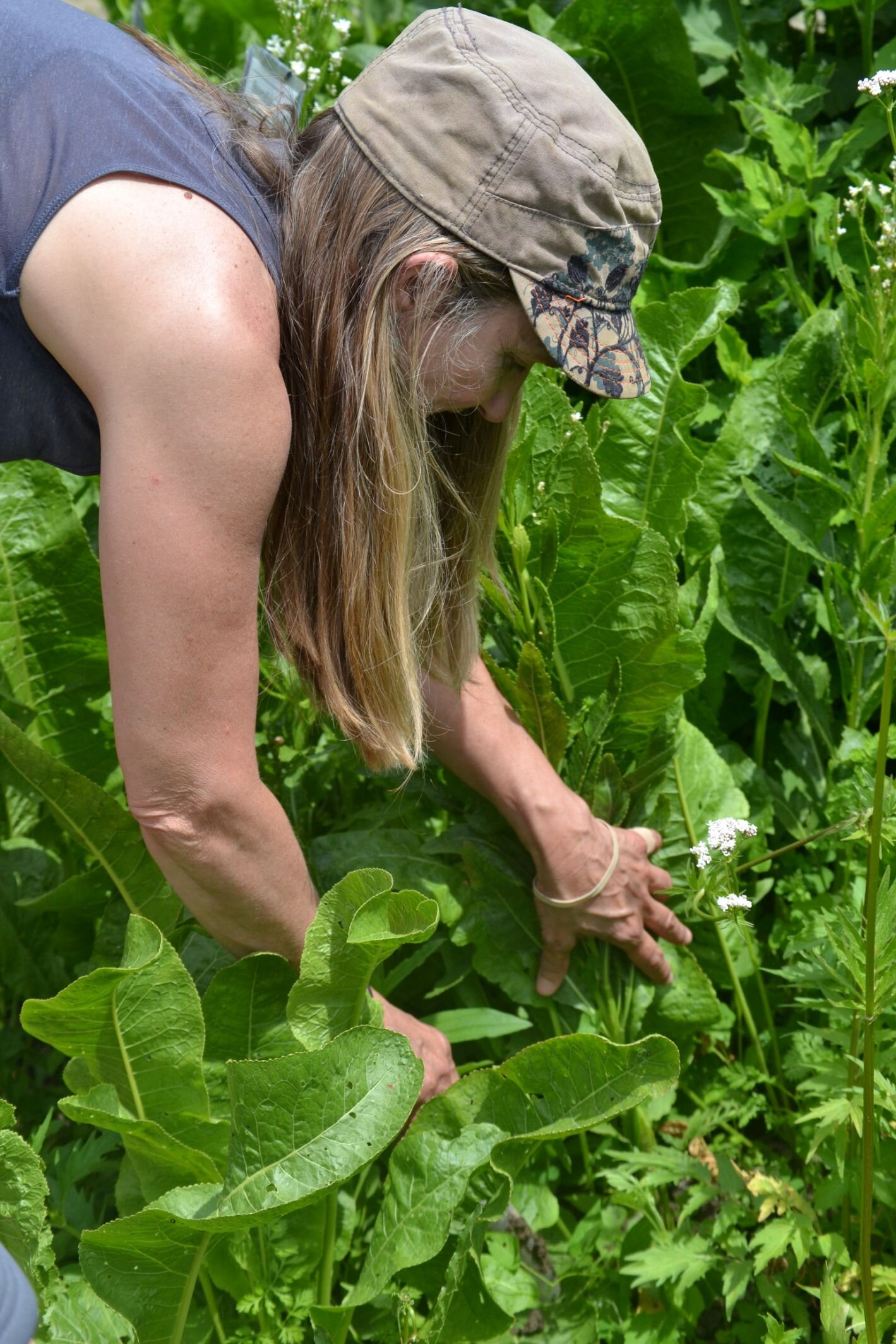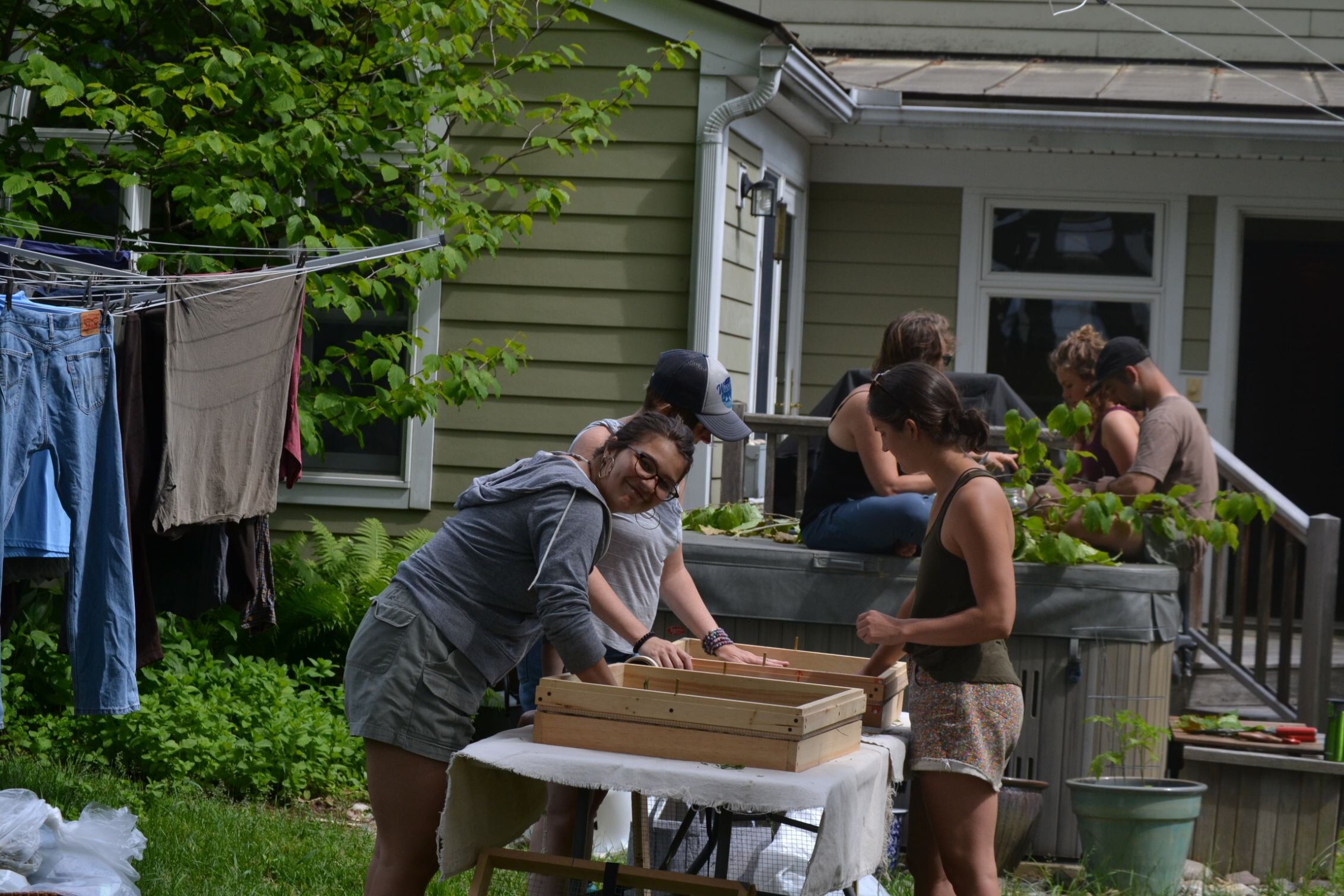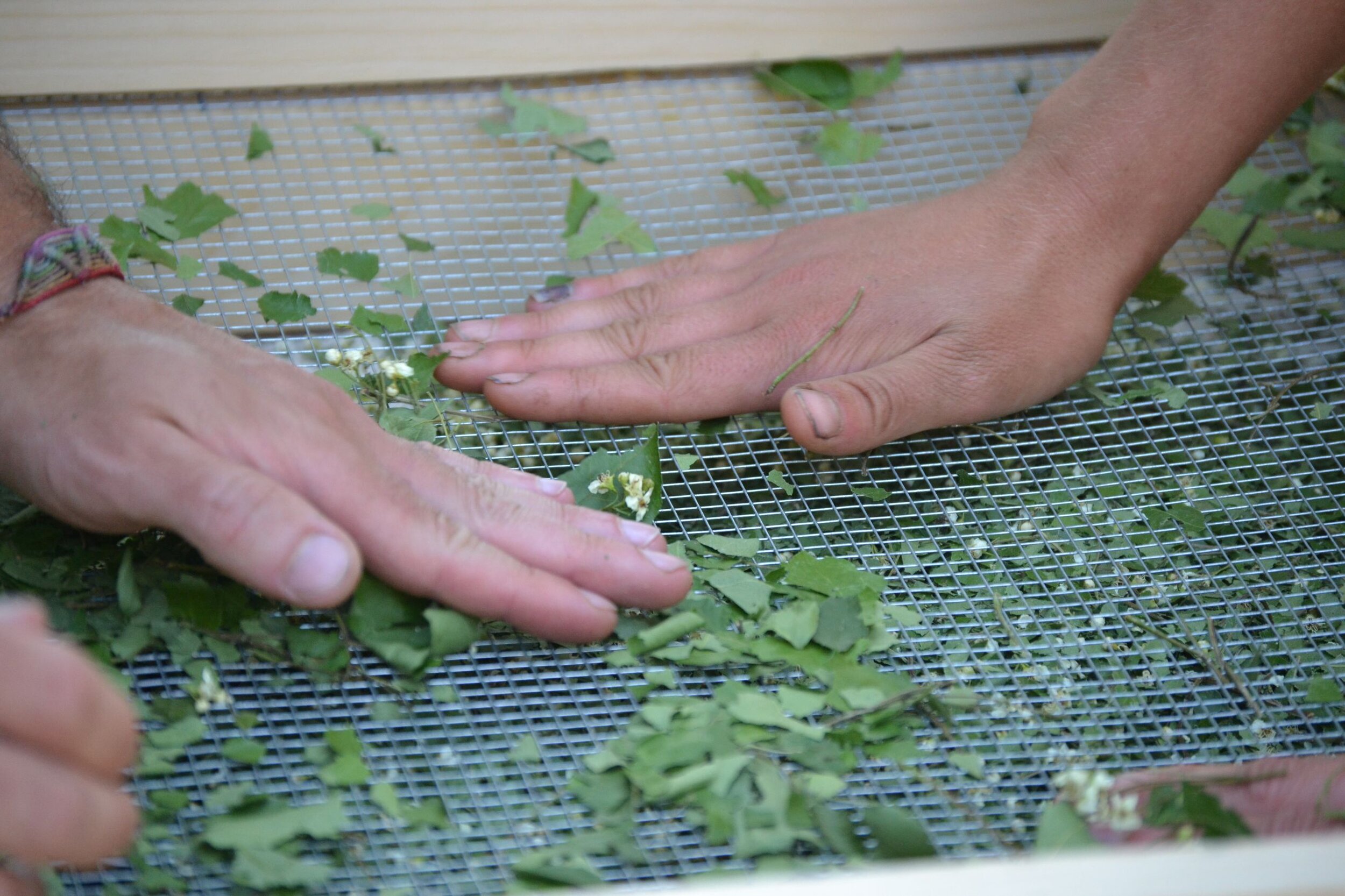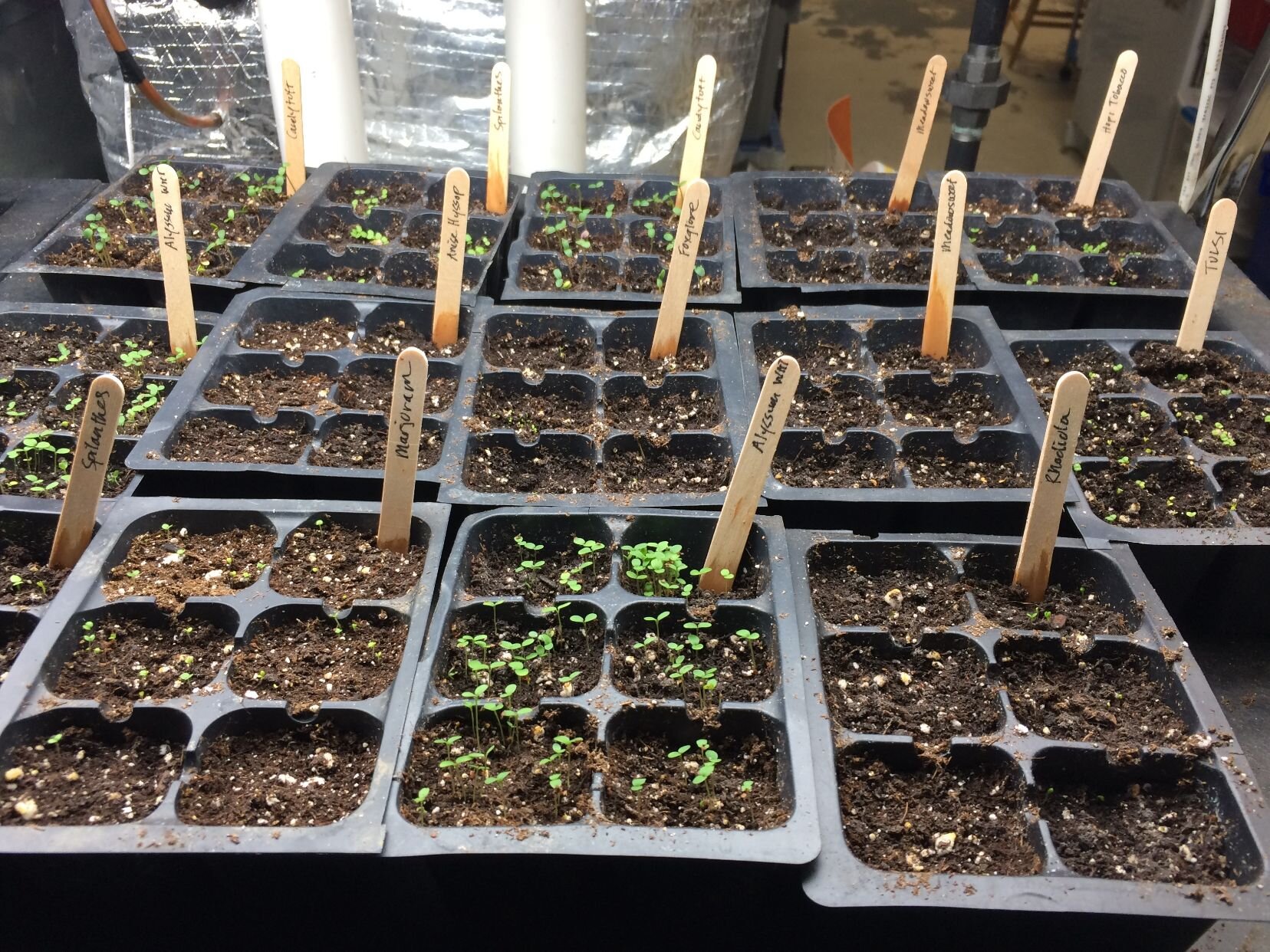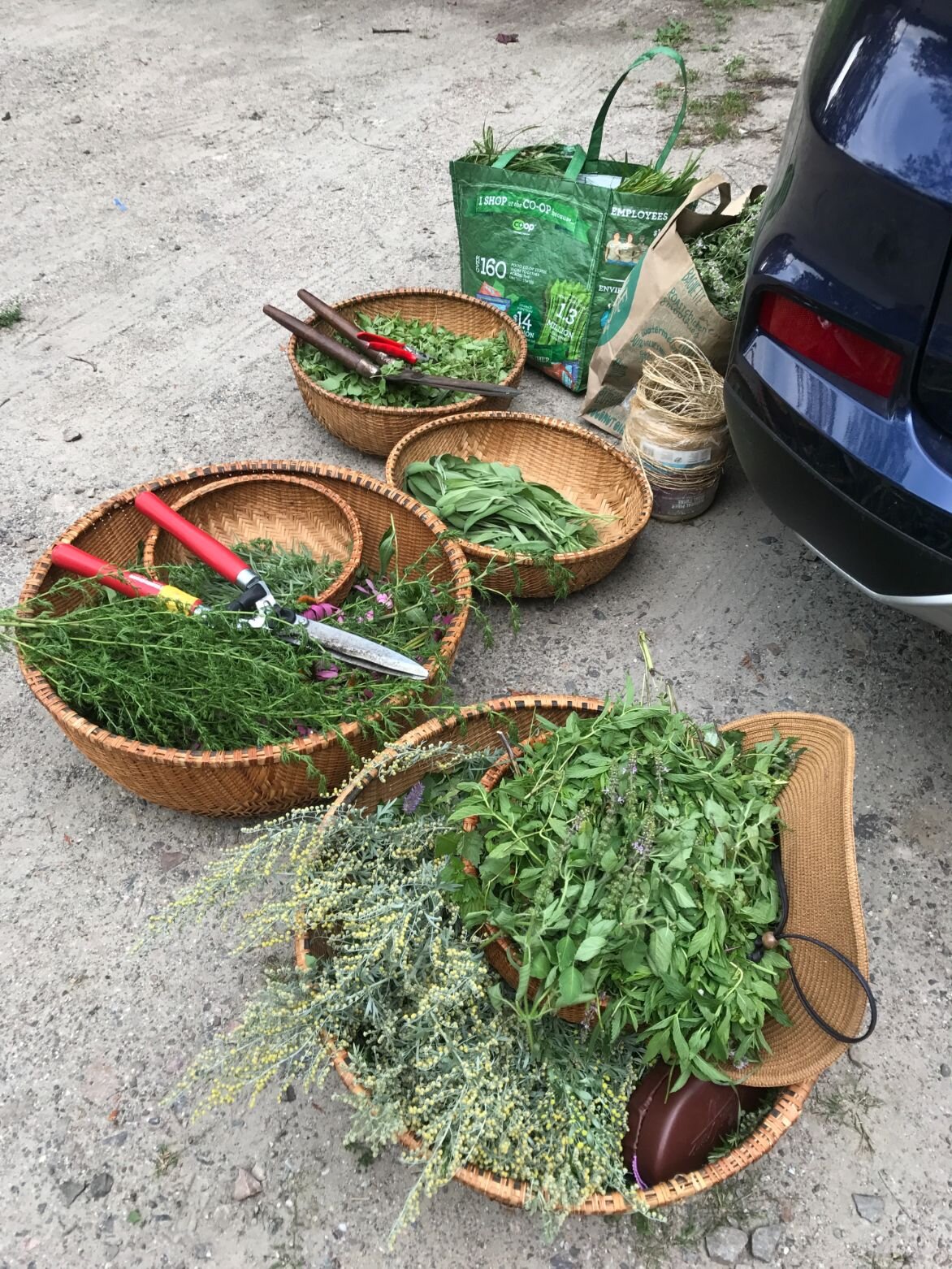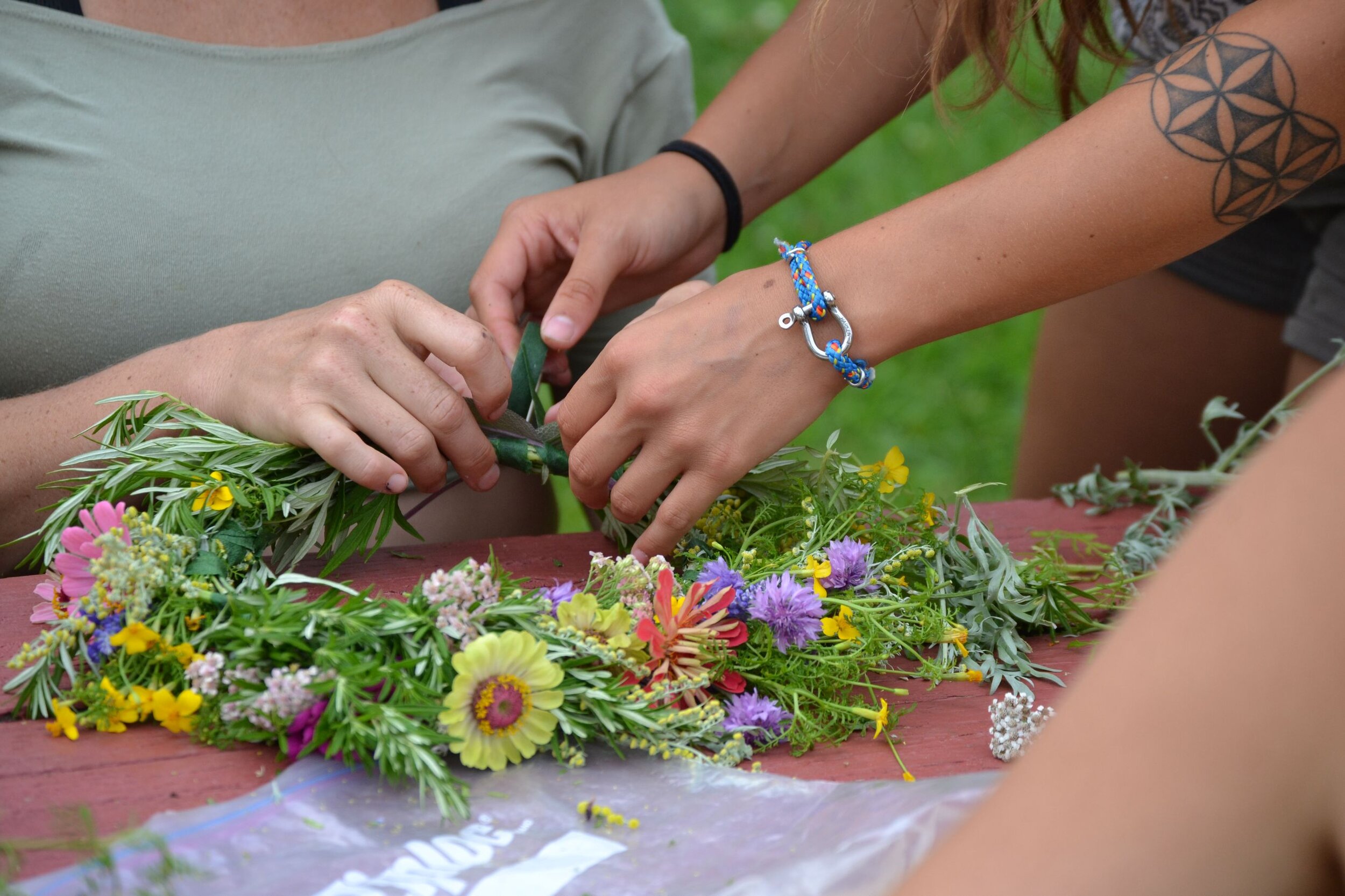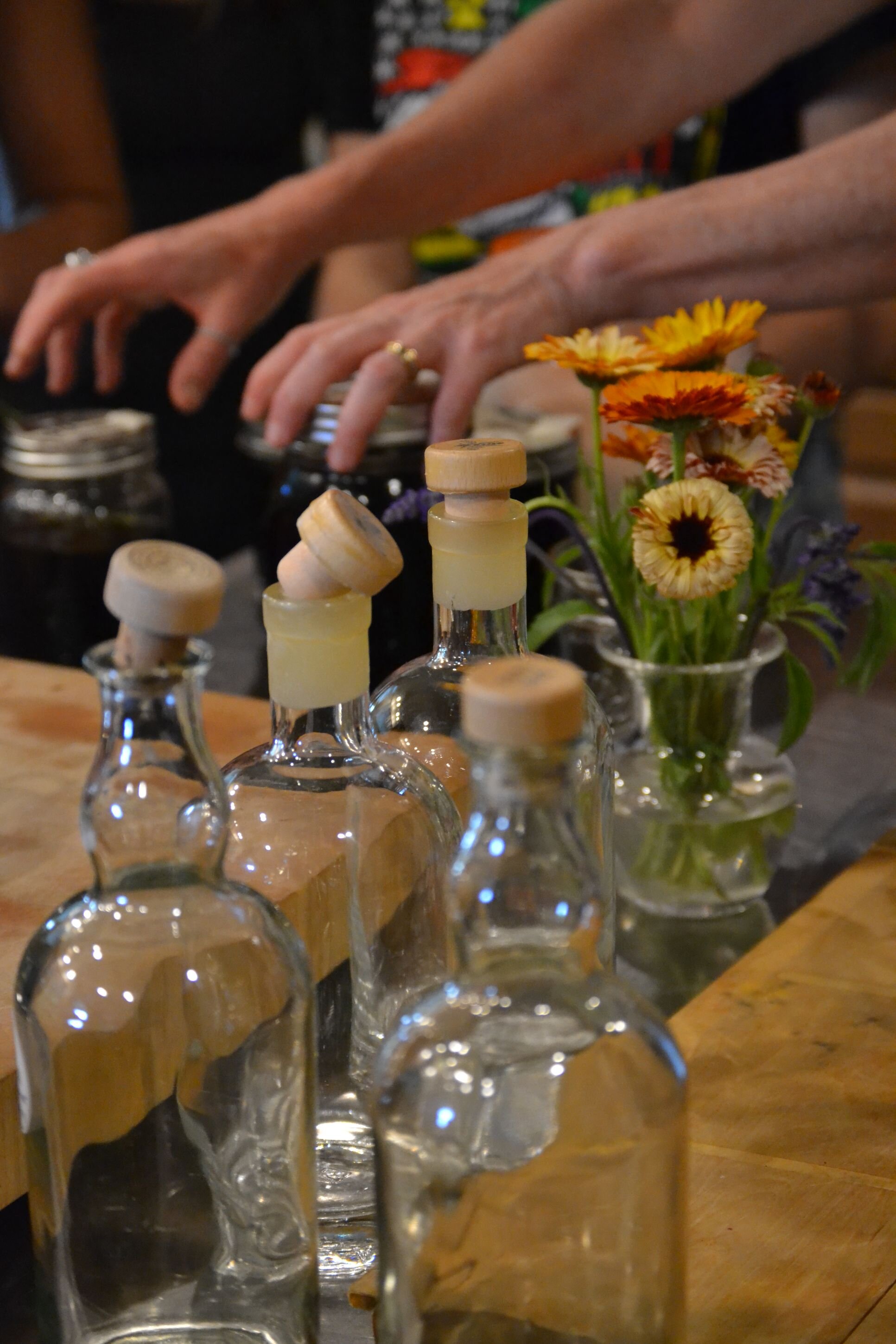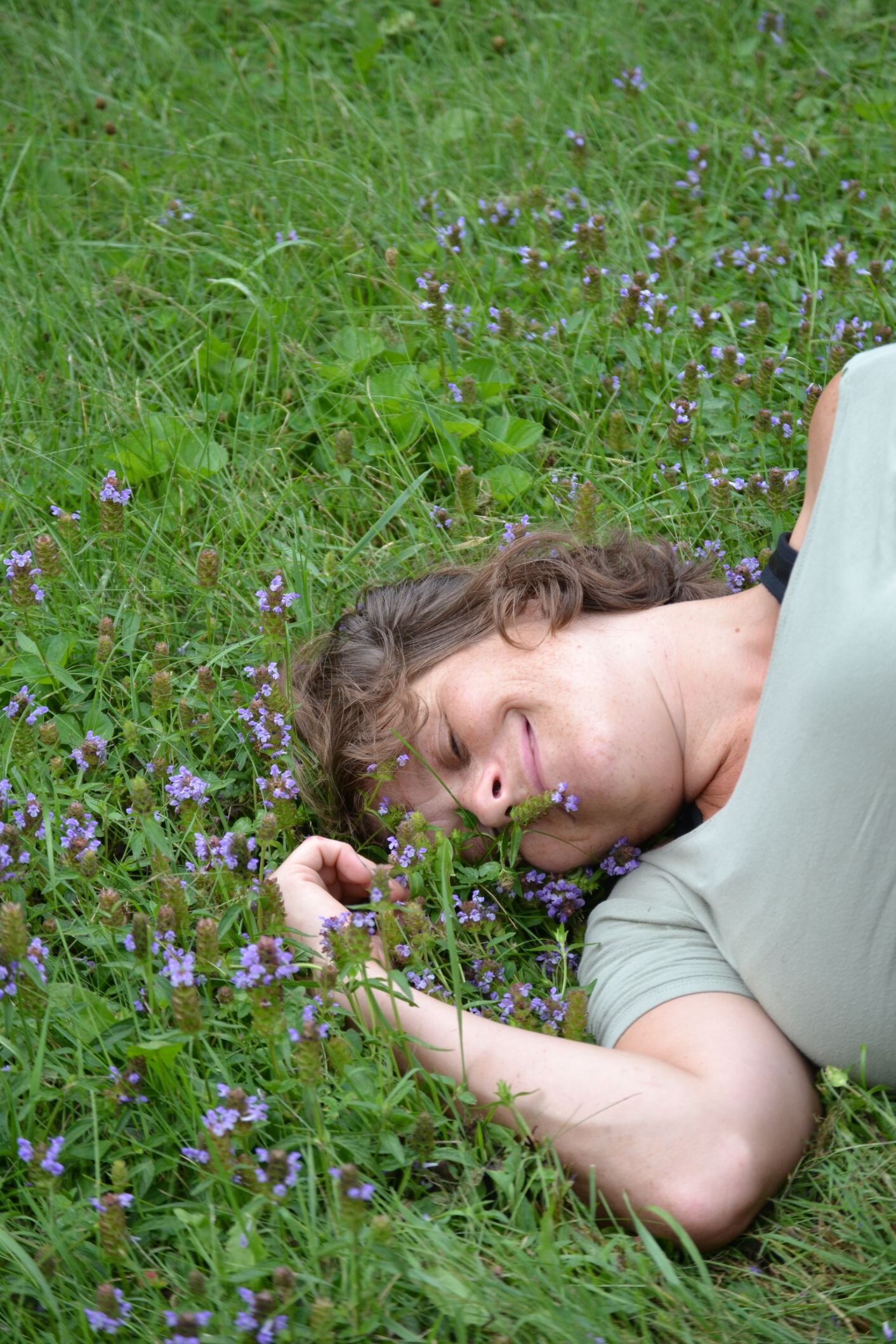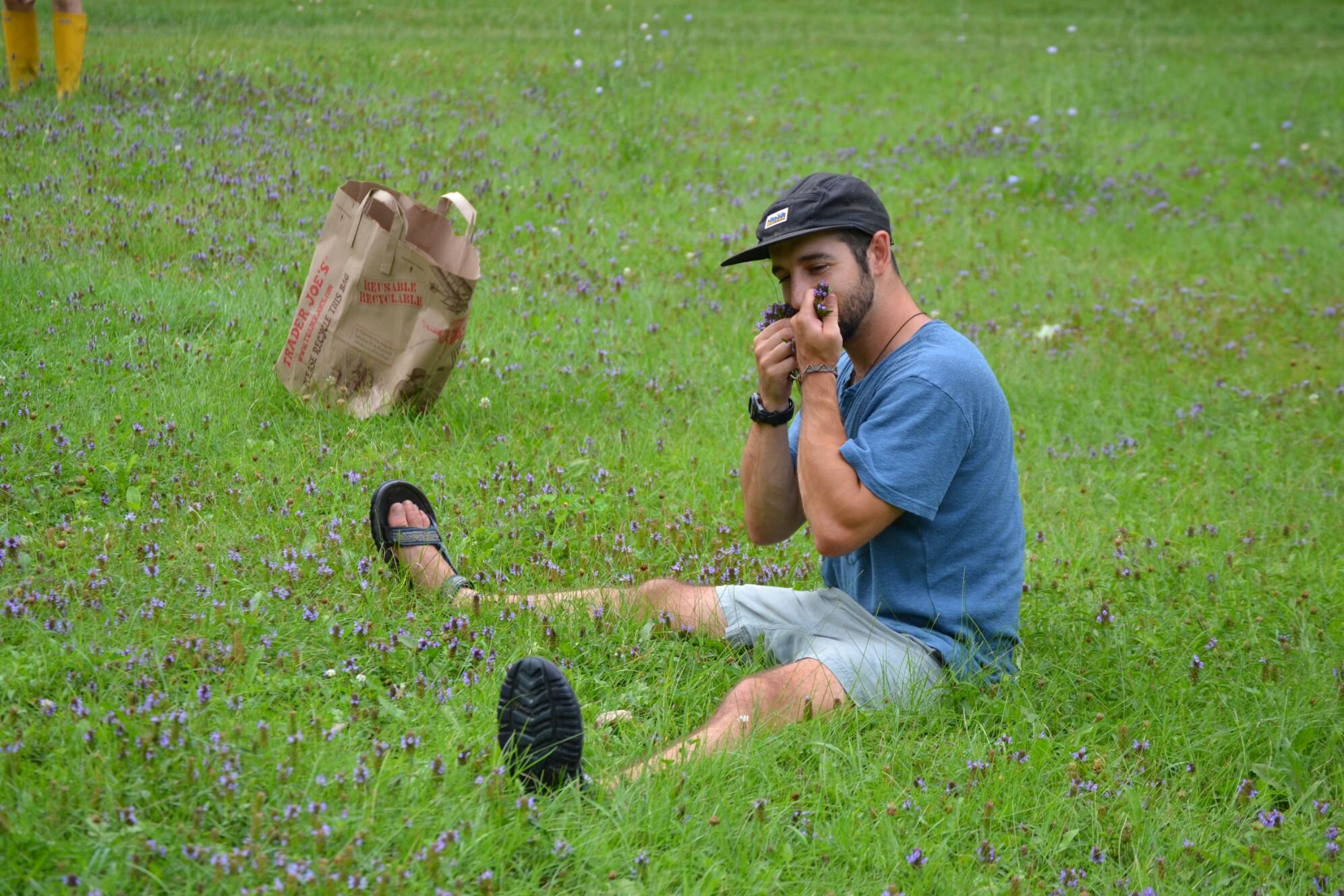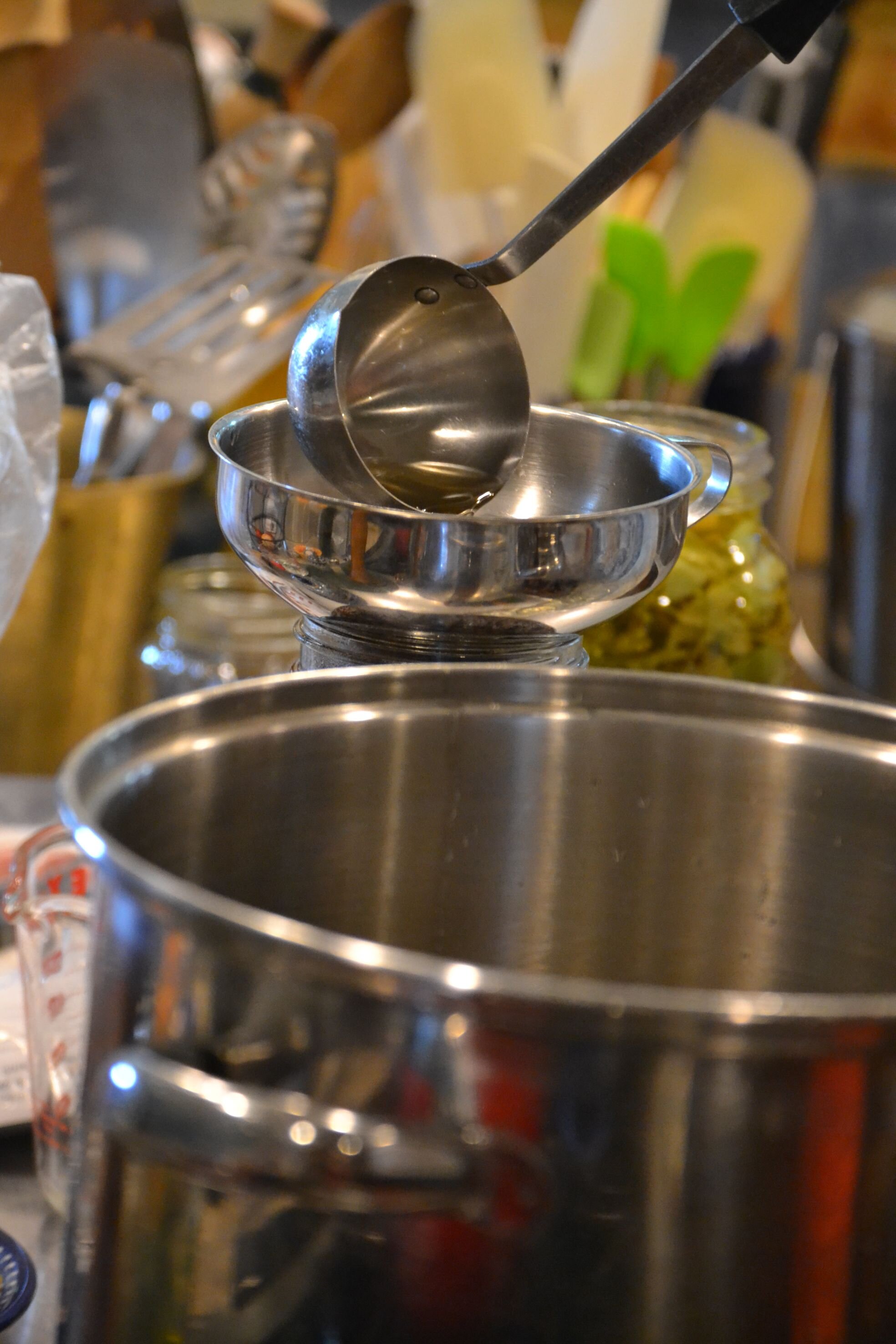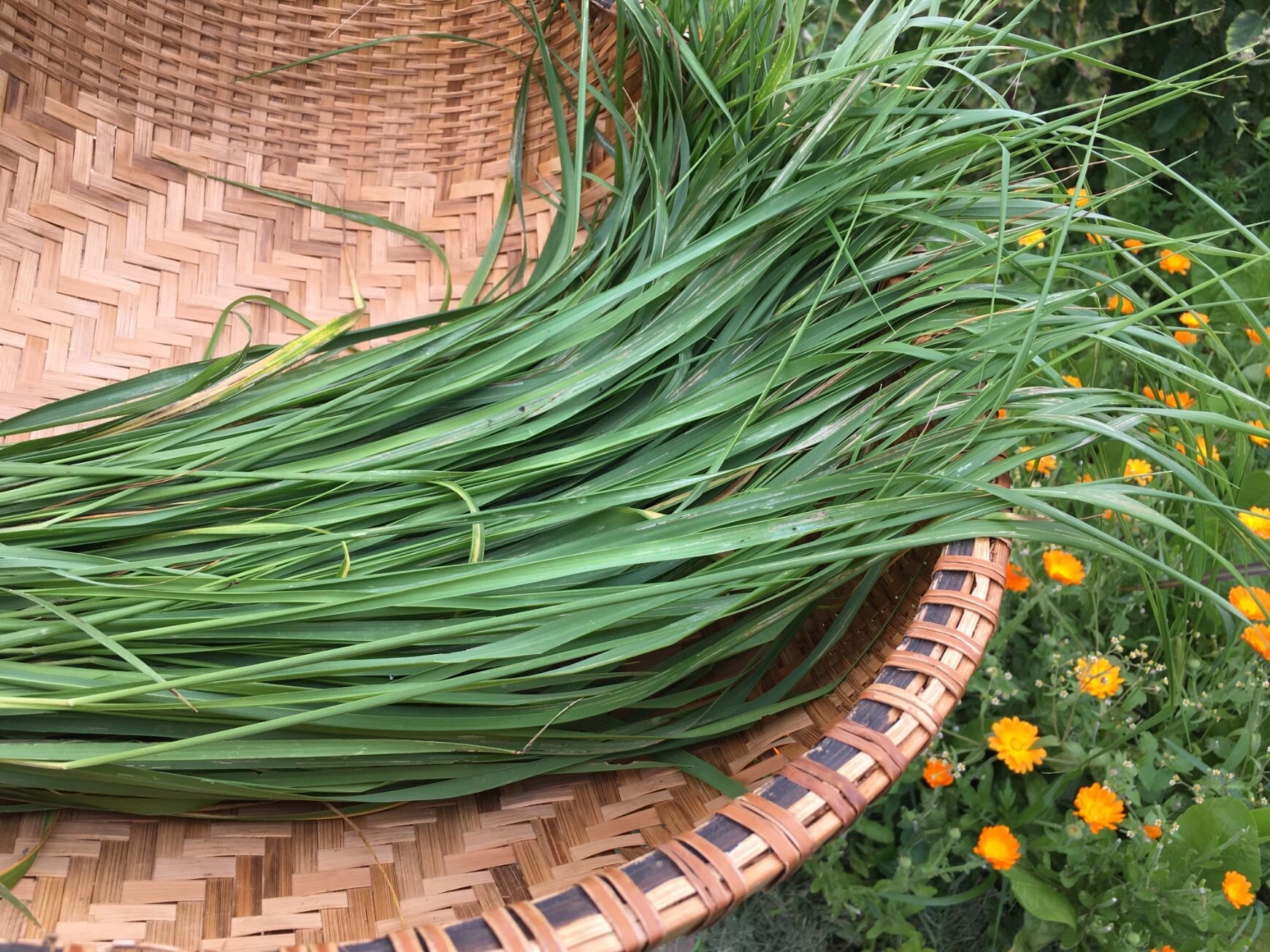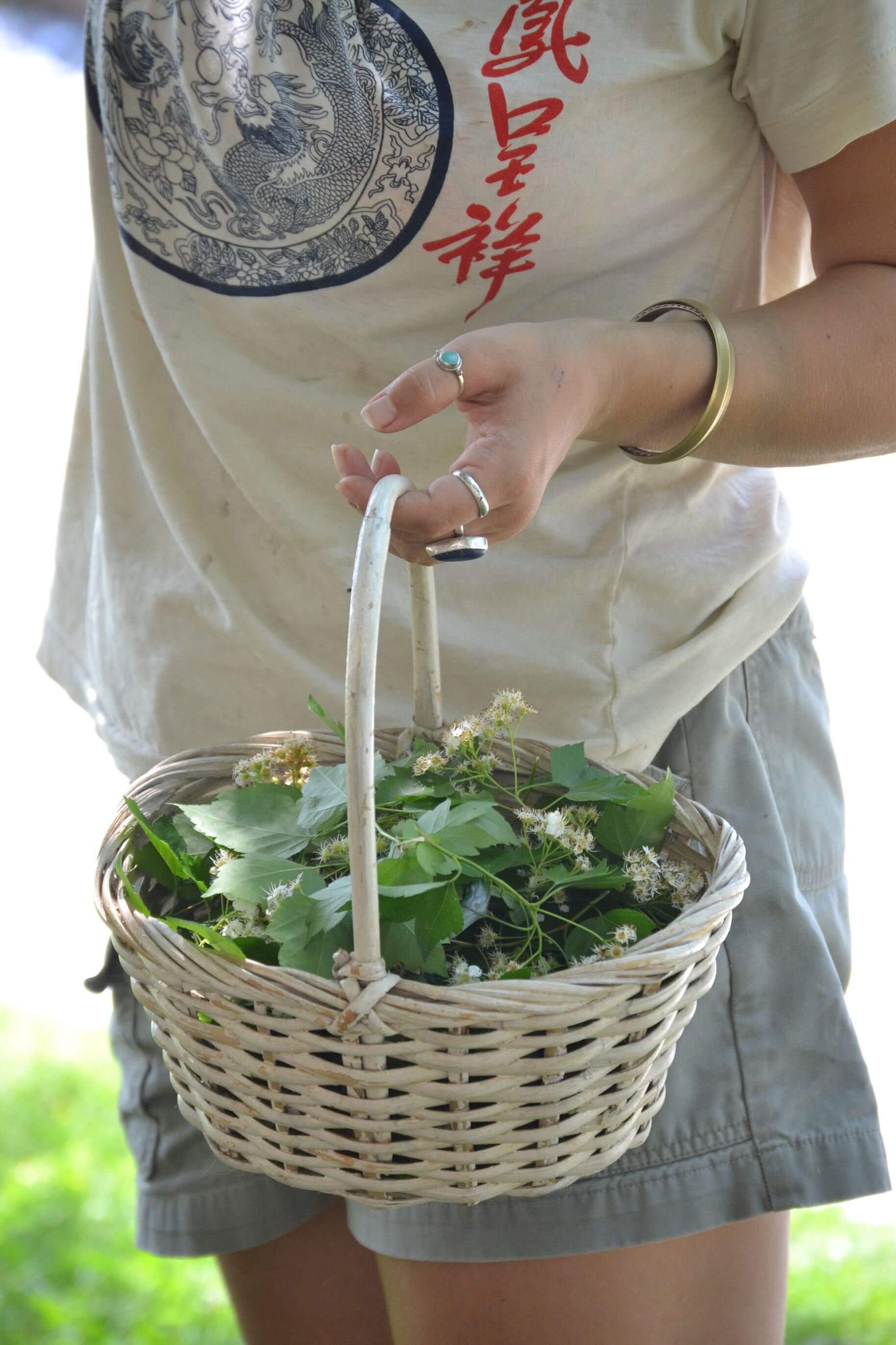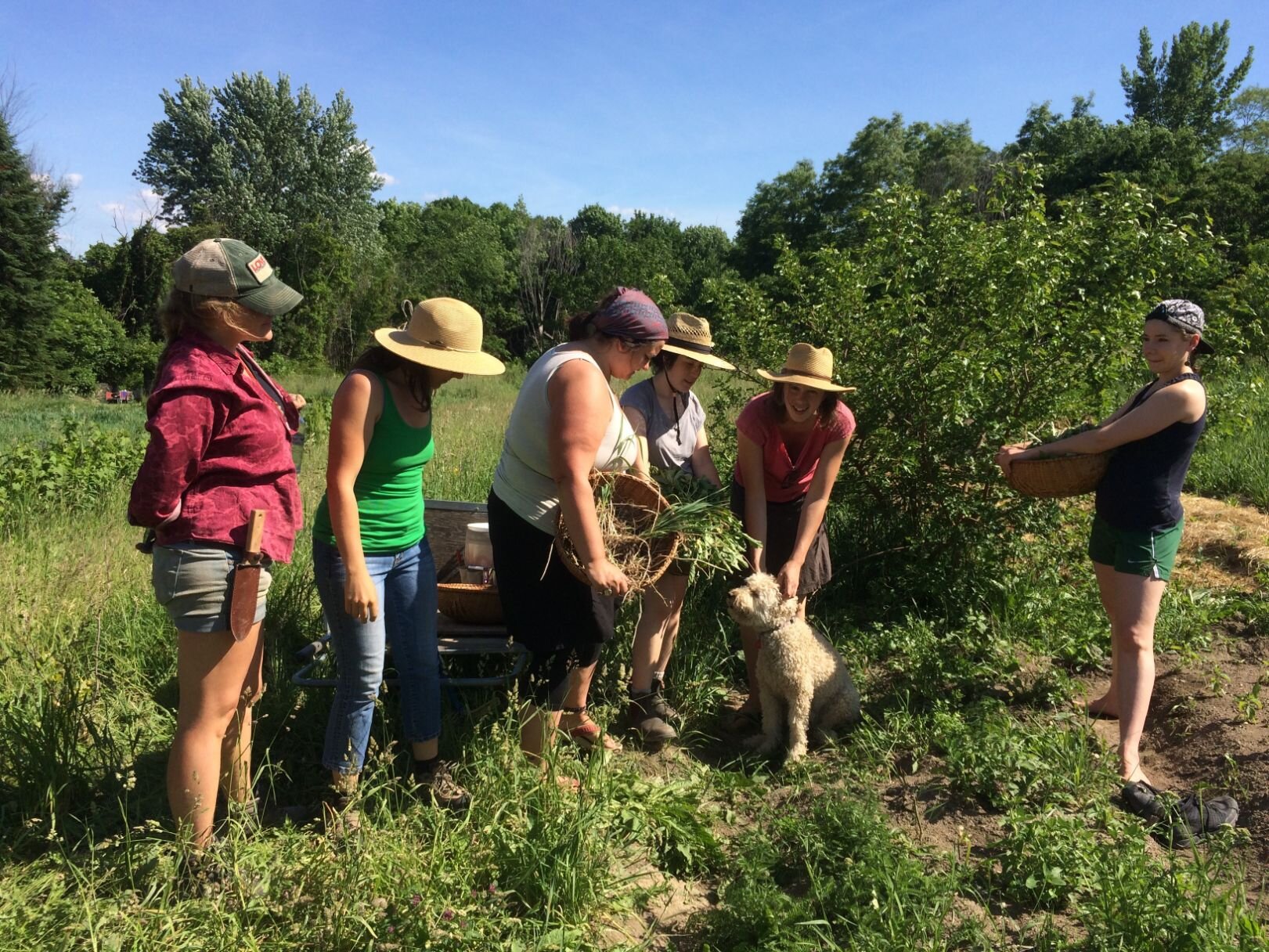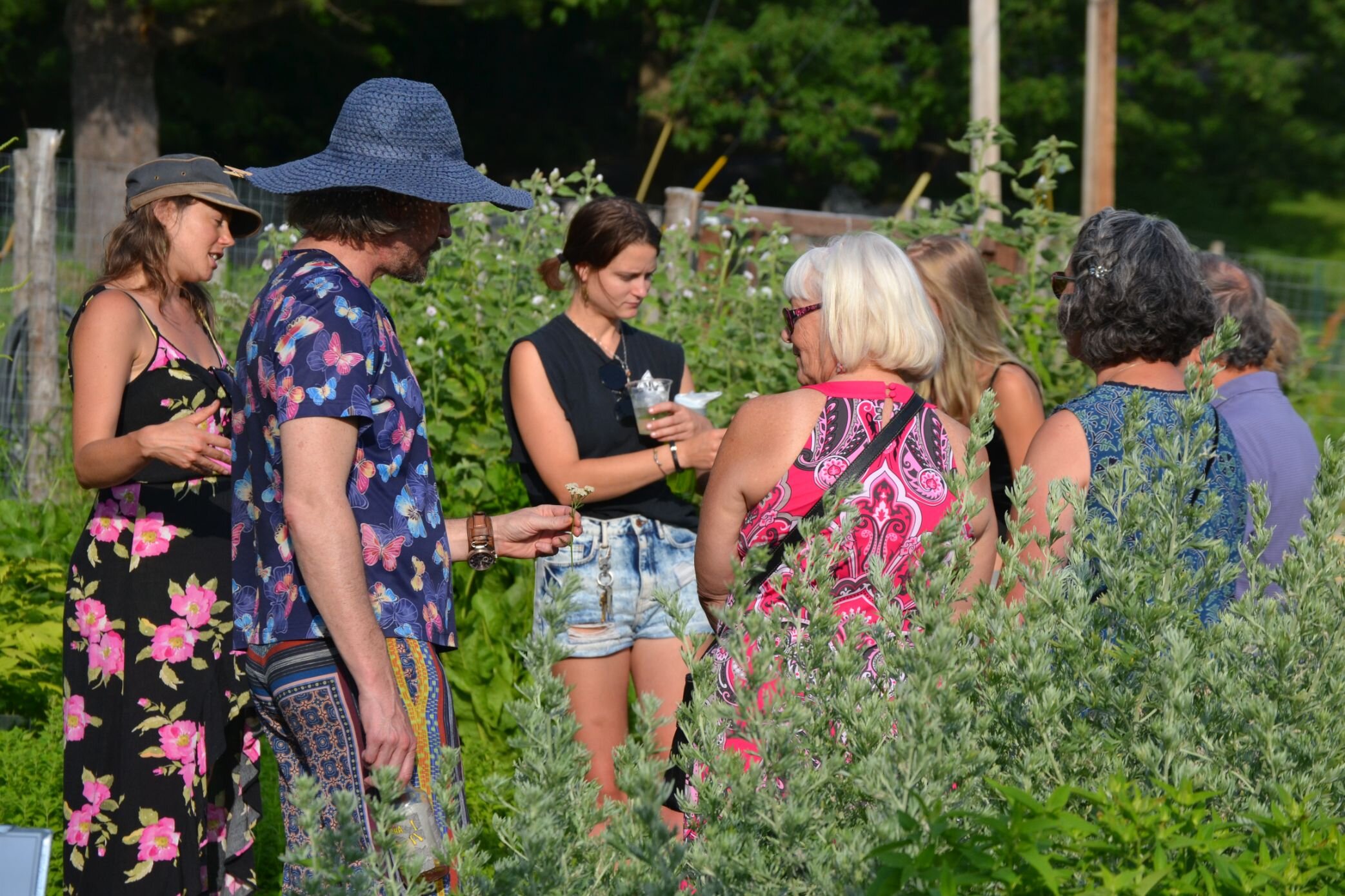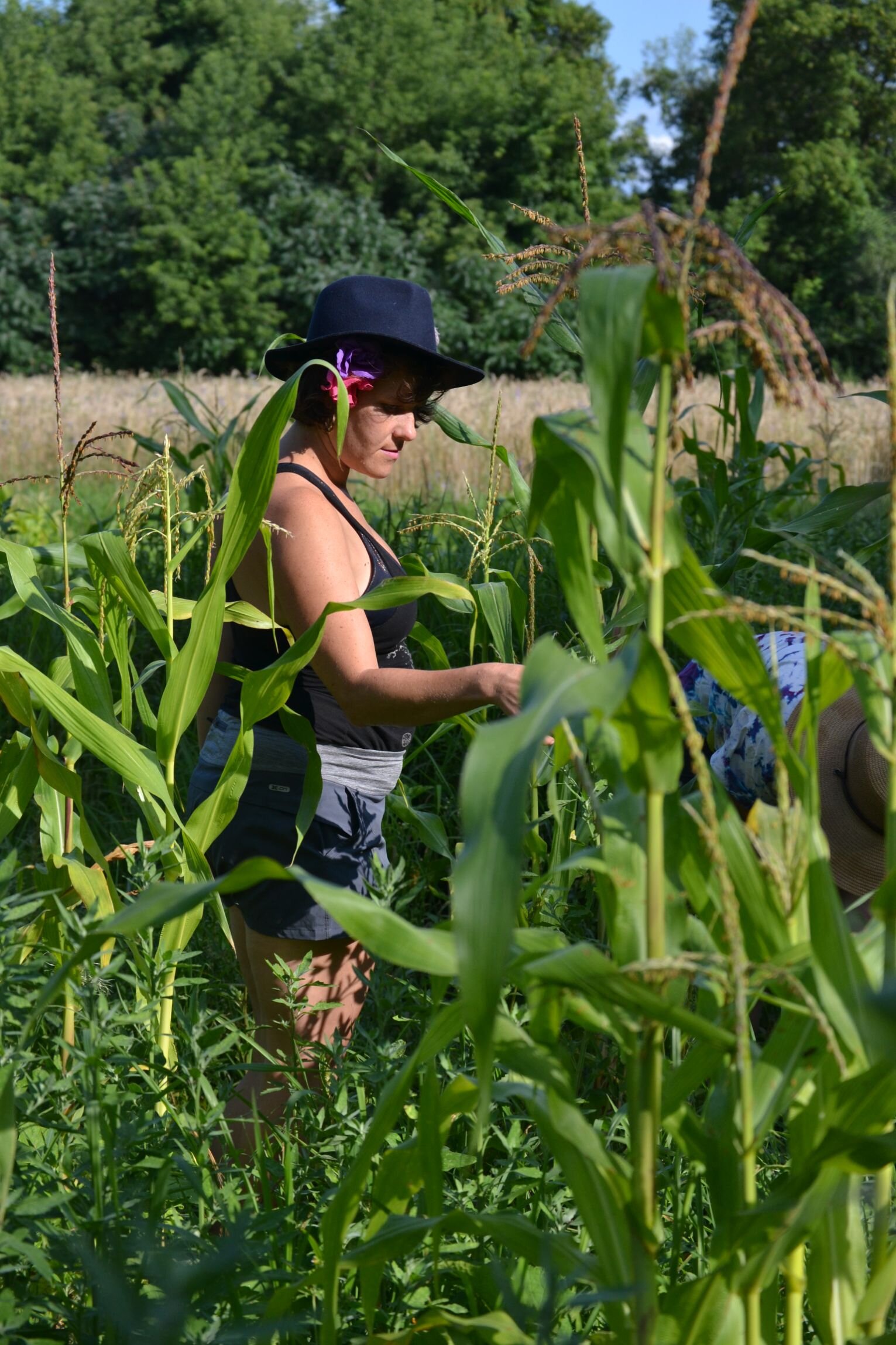
Apprenticeship
Grow your WELLNESS SOVEREIGNTY! Gain the confidence and skills to identify and make medicine from the locally and seasonally abundant healing plants of our region.
Our Community Herbalism Apprenticeship Program focuses on learning the region’s native and locally grown plants while producing high quality plant medicine for yourself, your families and the local community. This 6-month, hands-on introductory learning opportunity meets for 150 hours throughout the program. Classes will meet once weekly, on Wednesdays, from May through end of October from 3-7pm, with participants engaging in gardening, wildcrafting, community service and herbal medicine-making. Participants should expect regular reading and reflection assignments outside of class, and to make time to practice harvesting and medicine-making techniques at home. Most of the time together will be spent outside in fields, forests and gardens throughout the Burlington area (including both urban and rural ecosystems).
We strive to provide a genuine and joyful experience with the plants which promotes culinary, medicinal and spiritual curiosity & creativity, fosters a collaborative community of learners, emphasizes ecological stewardship and supports our social justice mission through the practice of heartful community herbalism in Place (Abenaki territory of N’Dakinna in the Bedabog watershed). The greatest teachers are the plants themselves, and learning through direct experience and experimentation with them will be prioritized over a more lecture-driven teaching approach of therapeutic or clinical uses (see our winter Therapeutic Herbalism course if this is what interests you). Apprentices will be encouraged to identify opportunities in our community to enhance access to plant medicine for all community members, and are supported to develop an independent study focus specific to their particular interests in plant medicine and herbal justice.
This class will be taught by Spoonful Herbals Katherine Elmer and other local herbalists, many who are Spoonful alumni. They share a deep love and reverence for the plants and the wild and not-so-wild places they live, and for the amazing resilience and innate knowledge of the human body. They find great joy in sharing their knowledge of the plants and their herbal creations with community near and far.
Katherine identifies as a queer, cis, femme white settler, and is predominantly trained in the Western herbal tradition. She is committed to diversifying the perspectives in this program, and will do so through readings, guest teachers and ongoing critical examination of her own biases. Our programming is open and inclusive to all aspiring herbalists. We recognize that the lens of our teachings come through our Celtic, white settler ancestors and (critically) Eurocentric herbalism training, and that we are occupying and harvesting on stolen Abenaki land, therefore we practice principles of the honorable harvest, assign learning materials from Queer and BIPOC authors, and invite guest educators to our gatherings in an imperfect attempt to offer a variety of perspectives.
2025 Program Details
Application
Applications for the 2025 program are closed. Subscribe to our mailing list for upcoming educational opportunities.
There is a $50 application fee (non-refundable and applied towards total tuition after acceptance)
Applications are accepted and reviewed on a rolling basis. After submitting your application and $50 fee, you will be invited to schedule an interview with the program facilitators.
Tuition
The cost of the program is $2272.
(Upon acceptance, a $222 non-refundable deposit will be required to secure your place in the program.)
The remaining balance of the tuition ($2000) is due by May 1st unless you request to work out another payment plan with us IN ADVANCE.
(Payment plans available upon request with an additional $50 fee.)
Financial assistance is available for eligible students while funds last through VSAC’s Vermont Non-Degree Grant. Apply early as funds are first-come first served and often run out by February or March. You do not need to be accepted into our program before applying for VSAC assistance.
Schedule
We will meet weekly, May 7th to October 29th on Wednesday afternoons from 3-7 pm.
Apprentices must complete a minimum of 8-10 practicum hours per month (or 50 hours prior to November graduation).
Total program hours: 150
Tentative Schedule for Each Month
1st Wednesday
Focus: Gardening at Rooted Heart Rising
at Rock Point Commons, Burlington
2nd Wednesday
Focus: Field Trip (May, July, September) and Remote Class (June, August, October)
3rd Wednesday
Focus: Remedy Making in Burlington’s New North End
4th Wednesday
Wild crafting (off-site, TBD at our partner sites including The Intervale Center, Shelburne Farms and other organic farms)
No class (or rain dates) on July 30th and October 1st
Please feel free to email us with further questions.

Reflections from Past Apprentices
“Apprenticing with Kara and Katherine is one of the best decisions I’ve made, and it has been incredibly impactful. The relationships with plants they hold are in balance with reverence to plants as teachers and friends. They carry the messages of community herbalism with concerted strategies and with innate grace. Kara and Katherine instill principles of the Good Harvest and embody the heart of herbalism. This apprenticeship has deepened my work with plants from all angles, and I’m incredibly grateful.”
“Katherine and Kara held so much space for us and we were able to cultivate a powerful, nurturing, tender community of budding herbalists in community with our plant allies. I’m not the same person I was when I began this apprenticeship, thank goodness!! I am so thankful for the lessons in abundance, joy, sharing, and reciprocity and the ability to show up as my full self with a beginner’s mind in the presence of loving, magical beings.”
“Kara and Katherine are generosity in motion! They welcomed us into their world, sharing their wide ranging herbalism experience and introducing us to local plants and allies in a way that was respectful and joyful. Together their work has so many ripples, and through it all, they hold community at the center.”
“I learned so much from Kara and Katherine and many days, felt excited to go home and try out medicine making right after class! The apprenticeship brought us to different gardens/farms in the Burlington area, where much learning was done through tending, harvesting and medicine making, and provided connections/resources in the local herbal community. No matter if you are pursuing herbalism professionally or want to incorporate herbal medicine into your personal life, this is a fantastic intro course that is a beautiful balance of information learning, hands on work and budding friendships.”
“Prior to enrolling in the Spoonful Apprenticeship I had minimal knowledge about medicinal herbals. The variety of learning experiences including work study, assigned readings especially Body into Balance and hands on preparation of tinctures, syrups, fire cider, body care products, plant identification walks, plant harvesting and preparation, etc all helped me to learn. I would highly recommend this journey to those wishing to learn from the ground up or add to your current knowledge base.”
“The Spoonful Apprenticeship made my summer! The program gave me a foundation for incorporating herbalism into my daily life, but even better, it cultivated real, direct relationships with plants. The green world continues to become more and more illuminated and engaging for my mind, heart and hands. I’m excited to keep learning and to share these gifts with my community.”
“I was truly impressed by the amount of herbal knowledge I gained over the 6 months! I can now confidently identify local plants in various stages of growth, and I have a working knowledge of how to apply them to my life. It was a very fun and rewarding experience that I would recommend to anyone!”
“The Spoonful apprenticeship was unequivocally the highlight of my year! It has deeply and profoundly impacted the way in which I live my life, interact with the world around me and relate to others. I highly recommend that folks participate in this program if they want to awaken slumbering sacred potentials within themselves!”


